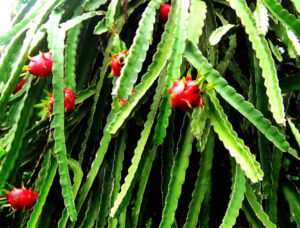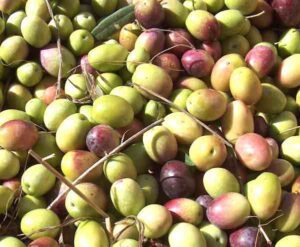Commercial lemon farming is a very old, popular and profitable business in many countries around the world. Many people are already doing this business commercially for making money.
Lemon is a very important fruit throughout the world and it is mainly known for it’s pulp and juice throughout the world. It’s a great business for making money easily.
The lemon (Citrus limon) is a species of small evergreen tree in the flowering plant family Rutaceae, native to Asia (primarily Assam, Northeast India), Northern Myanmar or China.
The tree’s ellipsoidal yellow fruit is called lemon and the fruit is used for culinary and non-culinary purposes throughout the world. It is used primarily for it’s juice, which has both culinary and cleaning uses. The pulp and rind are also used in cooking and baking.
The juice of the lemon is about 5% to 6% citric acid, with a pH of around 2.2, giving it a sour taste. The distinctive sour taste of lemon juice makes it a key ingredient in drinks and foods such as lemonade and lemon meringue pie.[1]
Total world production of lemons (combined with limes for reporting) was around 19.4 million tonnes. Top lemon producers were India, Mexico, China, Argentina, Brazil and Turkey (collectively accounted for 65% of global production).
However, commercial lemon farming is a very easy and profitable business. And you can start this business easily for making money.
Nutritional Value of Lemon
Lemon is very nutritious. It is especially a rich source of vitamin C. A 100 grams serving provide 64% of the Daily Value. And other essential nutrients are low in content.
Lemons contain numerous phytochemicals, including polyphenols, terpenes and tannis. Lemon juice contains slightly more citric acid than lime juice (around 47 g/l), nearly twice the citric acid of grapefruit juice and about five times the amount of citric acid found in orange juice.
Vitamin C is very high in lemon and other vitamins and minerals are relatively less in content. A 100 grams lemon juice provide following nutrients.
- Energy: 29 kcal (121 kJ)
- Carbohydrates: 9.32 grams
- Sugars: 2.5 grams
- Dietary fiber: 2.5 grams
- Fat: 0.3 gram
- Protein: 1.1 gram
- Vitamin C: 53 mg
Health Benefits of Lemons
Lemons are very nutritious and have numerous health benefits. Lemons are very high in vitamin C, fiber and numerous beneficial plant compounds.
Lemons may support heart health, weight control and digestive health. However, here we are trying to describe about the top health benefits of lemons.
- Lemons support heart health because they are high in heart-healthy vitamin C and several beneficial plant compounds that may lower cholesterol.[2]
- Regular consumption of lemons help to control weight.
- Lemon juice may help to prevent kidney stones.
- As you know lemons contain vitamin C and citric acid, which help you absorb non-heme iron from plants and this may prevent anemia.
- Lemon contain some beneficial plant compounds or chemicals which have been shown to prevent cancer in animal (human studies are needed).
- The soluble fiber in lemons could help improve digestive health. But for getting this benefit, you need to eat the pulp of the lemon, not just the juice.
- Lemon water promotes hydration. Adding lemon enhances water’s flavor, which may help you drink more.
- As lemon contain high amount of vitamin C, it improves your skin quality. It help to reduce skin wrinkling, dry skin from aging and also damage from sun.
- Lemon water freshens breath.

Advantages of Lemon Farming Business
Commercial lemon farming is a very easy and profitable business. Many people are already doing this business. It’s very easy, even the beginners can also start this business.
Commercial or large scale production of lemon is very popular in many countries for making money. However, here we are trying to describe the top advantages of lemon farming business.
- Starting commercial lemon farming business is very easy and simple. You can start this business easily, even if you are a beginner.
- Growing lemon plants is very easy and simple. The plants are also very strong and hardy.
- Commercial lemon farming is a traditional business in some areas of India, Myanmar and China.
- Many producers have already started commercial lemon farming business. So, you don’t have to worry much about starting this business. It has very good future.
- Commercial lemon production is highly profitable. So, you will be able to make good profits from this business.
- You can start this business even if you are a beginner. Although, we recommend having training before starting commercial production.
- Capital requirements are relatively low as compared to some other crop farming business. But don’t worry, the returns are good.
- Both demand and value of lemon are good in the market. So, you don’t have to worry much about marketing your products.
- Caring the lemon plants is very easy. And you have to spend less for taking care of your plants.
- You can even start small scale lemon production and utilize your unused land, bank of ponds or lakes etc. And doing so will give you some extra money.
- Commercial lemon farming is a very good and profitable business. So, it can be a good employment source for the unemployed people. Especially for the educated but unemployed people.
- Lemons are very nutritious, and you can enjoy fresh lemons if you start your own lemon production business.
How to Start Lemon Farming Business?
Starting commercial or large scale lemon production business is very easy and simple. You can easily start this business even if you are a beginner.
But we recommend having training or practical knowledge from existing farmers if you are a beginner. Here we are trying to describe more information about starting commercial lemon farming business.
Step 1. Site Selection
First of all, you have to select a very good location for starting your commercial lemon farming business. Actually, lemons can be grown in almost all types of soils. Light soils having good drainage are suitable for it’s production.
Ideal pH range should be 5.5 to 7.5. The plants can also grow in slightly alkaline and acidic soils. Light loam and drained soils are considered best for commercial lemon cultivation business.
Step 2. Land Preparation
Prepare the land perfectly so that the plants can grow well. Plough, cross plough and level the land properly. In case of planting in hilly areas, planting is done on terraces against slopes in hilly areas. High density planting is also possible in such areas.
Step 3. Climate Requirement For Lemon Production
The sub-tropical climate is the best suited for lemon plant growth and good development. Temperature below -4° C is harmful for the young plants. Soil temperature around 24° C to 25° C seems to be optimum for root growth.
Dry and arid climates/conditions coupled with well-defined summer having low rainfall (ranging from 75cm to 250cm) are most favorable for the growth of the crop.
Step 4. Varieties/Cultivars
There are many different varieties or cultivars of lemon available throughout the world for commercial production. Some common and popular lemon varieties are Bonnie, Eureka, Lisbon, Sorrento, Yen Ben etc. are some common variety found and cultivated in United States.
Step 5. Purchase Seeds/Plants
The lemon plants are propagated by budding or air layering. You can either prepare the plants of your own or purchase from any of your nearest nurseries.
Step 6. Planting
The best season for planting lemon plants is between July and August. Minimum recommended plant density is 208 plants per acre.
Spacing between plants should be kept between 4.5×4.5. Pits of size 60×60×60cm should be dug for planting seedlings. 10Kg of Farmyard Manure and 500g of single superphosphate should be applied to pits while planting.
Step 7. Caring
The lemon plants are very strong and hardy and they generally require less caring and other management. Although, taking additional care will help the plants to grow better and produce more.
Here we are trying to describe about the top caring process of the plants for commercial lemon farming business.
Fertilizing
The lemon plants are heavy feeders. They require both organic and chemical fertilizers for better growth and maximum production. Apply well decomposed cow dung at the rate of 5 to 20 kg per tree when the age of the plant is between 1 and 3 years. Apply Urea at the rate of 100-300 grams per tree.
Apply well decomposed cow dung at the rate of 25 to 50 kg and Urea 100 to 300 grams per tree when the tress are between 4 and 6 years of age. For the trees aged between 7 and 9 years, apply urea at the rate of 600 to 800 grams and well decomposed cow dung at the rate of 60 to 90 kg per tree.
Apply around 100 kg well decomposed cow dung per tree and 800 to 1600 grams of Urea for the trees aged up to 10 years.
Apply whole amount of cow dung during December month whereas apply Urea in two parts; apply first of Urea in February, and second dose in April-May month. At time of applying first dose of Urea, apply whole dose of SSP fertilizer.
Watering/Irrigation
Lemon plants require regular irrigation for better growth and production. Lifesaving irrigation should be given in winters and summers. Irrigation is necessary for Flowering, Fruiting and proper plant growth.
Although, over irrigation may also lead to diseases like Root rot and Collar rot. High frequency watering is beneficial.
Mulching
Mulching is very beneficial for retaining moisture into the soil, it also helps to control weeds. You can use organic materials for using as mulch.
Weeding
Weeds can be controlled by hand-hoeing and also controlled chemically. Use glyphosate at the rate of 1.6 liter per 150 liter of water. Use glyphosate only on weeds not on crop plants.
Pruning
For proper growth of trunk of plant, Shoots in 50-60cm near ground level should be removed. Center of plant should remain open. Water suckers should be removed at early stages of growth.
Step 8. Control Pests and Diseases
Like many other commercial crops, the lemon plants are also susceptible to some pests and diseases. Common pests and diseases of the lemon plants are Citrus psylla, Leaf miner, Scale insects, Aphids, Mealy bugs, Citrus canker, Gummosis, Powdery mildew, Black spot, Lemon scab, Collar rot, Zinc deficiency, Iron deficiency etc. Contact with an expert in your area if you notice any problem.
Step 9. Harvesting
You can start harvesting when the fruits attain proper size, shape along with attractive color. Depending upon variety fruits are generally ready for harvesting in Mid-January to Mid-February.
The Eureka lemon variety grows year-round and abundantly. This is the common supermarket lemon, also known as ‘Four Seasons’ (Quatre Saisons) because of its ability to produce fruit and flowers together throughout the year.
Do harvesting at proper time as too early or too late harvesting will give poor quality. Wash the fruits after harvesting with clean water.
Yield
Yield is generally low during the initial years. You can expect between 50 and 60 fruits per tree in their 2-3 years of age. Production increase as the plants age and you can expect good production from their 8th years of age. Average production is around 700 fruits per tree after stabilization.
Step 10. Marketing
Marketing lemon is very easy and simple. You can easily sell your products in the local market or any supermarket. Although, you should make a good marketing plan before starting this business.
These are the common steps and ways for starting and operating a successful lemon farming business. Hope this guide has helped you. Good luck and may God bless you!






